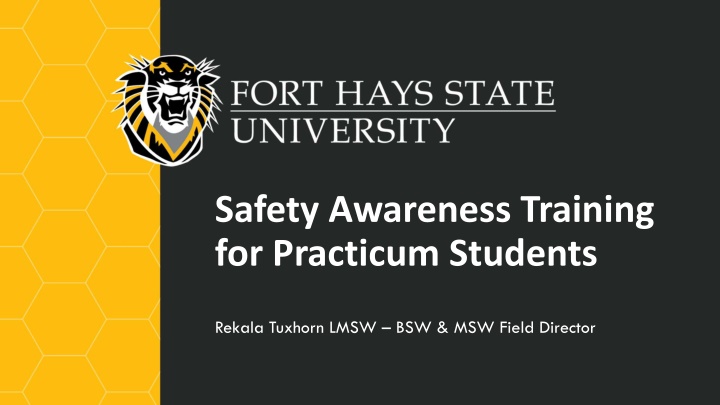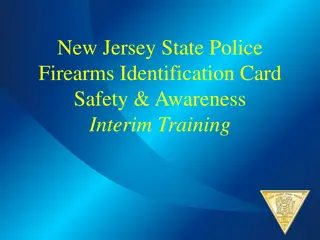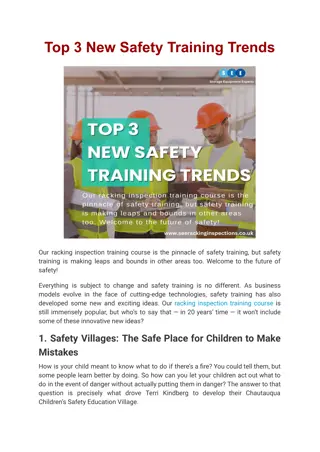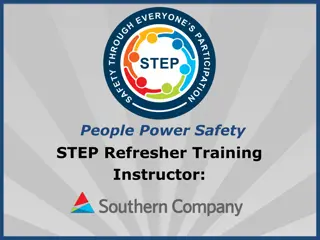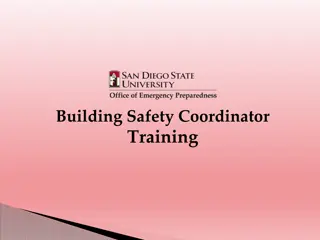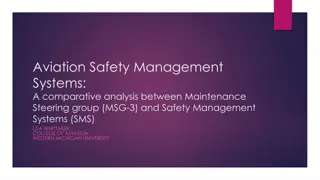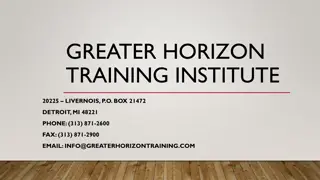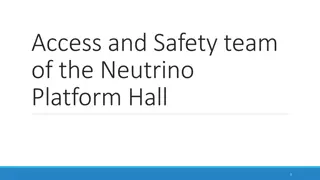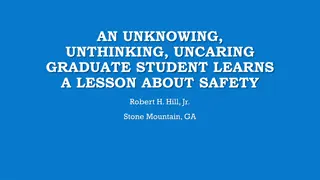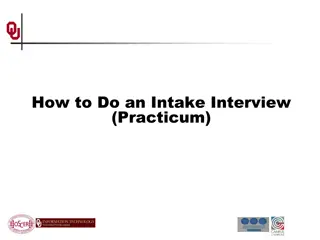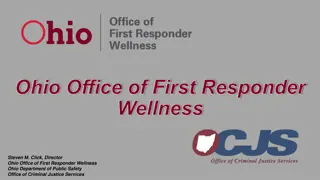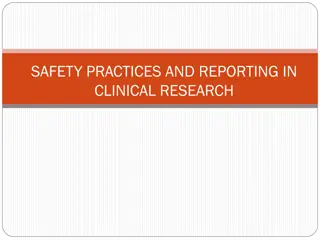Safety Awareness Training for Practicum Students
Gain valuable insights on personal safety and security while working with vulnerable populations as a practicum student or social worker. Learn essential safety measures to protect yourself in various field placement settings, including how to be aware of your surroundings, work with clients' strengths, and follow basic rules to ensure your well-being. Stay informed, prepared, and vigilant in your professional endeavors to facilitate a safe and productive working environment.
Download Presentation

Please find below an Image/Link to download the presentation.
The content on the website is provided AS IS for your information and personal use only. It may not be sold, licensed, or shared on other websites without obtaining consent from the author.If you encounter any issues during the download, it is possible that the publisher has removed the file from their server.
You are allowed to download the files provided on this website for personal or commercial use, subject to the condition that they are used lawfully. All files are the property of their respective owners.
The content on the website is provided AS IS for your information and personal use only. It may not be sold, licensed, or shared on other websites without obtaining consent from the author.
E N D
Presentation Transcript
Safety Awareness Training for Practicum Students Rekala Tuxhorn LMSW BSW & MSW Field Director
Personal Safety Look Out for Your Own Welfare Do you have a safety plan? Practicum Students & Social Workers Often so focused on the clients Sometimes you neglect your own personal welfare You work with clients in Your office Their homes Their neighborhoods You are working with individuals who are at their most vulnerable There is no specific solution for guaranteed safety. There are essential safety measures you can take to protect yourself in your field placement
Personal Safety Continued MUST BE AWARE OF YOUR SUROUNDINGS While you should always: Work with our clients' strengths Important to balance your optimistic outlook with practicality Social Workers work with individuals who may have impairments mental illness, substance abuse, intellectual disabilities May prevent individuals from being able to: appropriately assess situations may contribute to acting out aggressive behaviors. Even if the individuals are not impaired, they may be unhappy that the agencies are involved in their lives. CPS Court services Hospital Mental health facility The risk of violence is real and could occur no matter the economic, social, gender or racial make up of a community.
Basic Rules Many agencies have specific training related to the populations they serve Working in the community Working in the client's environment Working in an office setting Basic rules that apply to all settings: Keep your valuables safe (cell phones, keys, money, credit cards .. Be aware our clients may be highly emotional, impaired and have poor impulse control Do not allow yourself to be cut off from an escape by clients Be aware of your social media accounts, phone numbers, email... Do not put your personal information out there for everyone to see
Always be in the K.N.O.W Know the Population Notify Supervisors of your location Observe and asses the situation Wear a Noise making devise
Know your population Learn about the population you work with Discuss personal history Hx Gang association Hx of violence Hx of alcohol / drug abuse Should you: Keep door open when meting with them? Should you meet in a public place? If there is: Immediate danger Weapons
Notify others of your location Make sure: Supervisor knows where you are Who you are going to see Keep your cell with you Check in calls Text updates Update any changes to calendar Call for help
Final thoughts / Implications Always: Notify authorities if appropriate Talk to your supervisor about any safety concerns Talk with your field instructor so she/he is aware of the situation Notify me so that I m aware of the situation Debrief, Document, Do Self-Care Safety is essential to your success You cannot help if you are afraid for your wellbeing Therefore Important to identify dangerous individuals/situations Know how to respond Maintain awareness Be proactive Leads to ability to do your job
